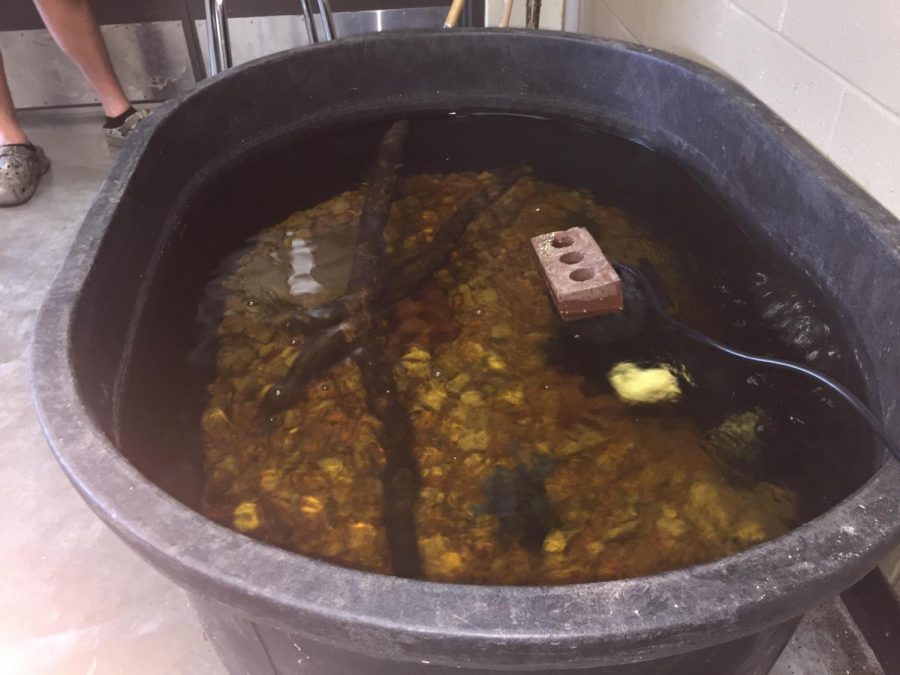Lujano, Hamm breed fish as FFA project
Often times, it is easier to learn when the subject one is studying is of interest to them. This is exemplified in juniors Drake Hamm and Cole Lujano\; both having an interest in fishing, whether it be competitive or casually, now are taking on an attempt to breed fish as an FFA project.
Hamm and Lujano are only about three weeks into the process of breeding fish. Currently all they have done is construct a tank for the fish as well as research into what the breeding process for fish is like.
“We started with a bunch of research, and we found out that minnows need a shelter of some sort. As well as that they breed on wood. So we found some logs, and we tied them down so they stay in the water,” Hamm said. “Now we’re just in the process of trying to find fish to breed. Currently we only have goldfish in our shelter, just to test the waters.”
Hamm and Lujano are pursuing their goal of breeding fish through a Supervised Agricultural Experience (SAE) program, a program offered through FFA. They are being supervised by agricultural education teacher Paxton Trembly.
“Anyone in FFA in the country can do an SAE,” said Lujano said. “SAEs provide experiential learning activities that will help us learn more about agriculture and gain some experience in what working in agriculture is like.”
Due to these two both having an interest in fishing, they decided to become partners for this SAE. Although, they do not believe their prior fishing knowledge will help much in learning about the spawning cycles of fish.
“I’m on Buhler High School’s fishing team, because NHS doesn’t have a team, and I’ll occasionally compete in tournaments with them. Me and Drake have both loved fishing since we were young,” Lujano said. “Although, I don’t think it’s going to help us here, because breeding fish is much more about biology, and we don’t know much about that stuff yet.”
Lujano and Hamm enjoy fish breeding because it is low stakes and solely a learning experience, as opposed to a competition.
“Overall, this is just an experimental process,” Hamm said. “We’re having fun with it. Our goal is to just end up with more fish than what we started with, we aren’t competing or anything.”

